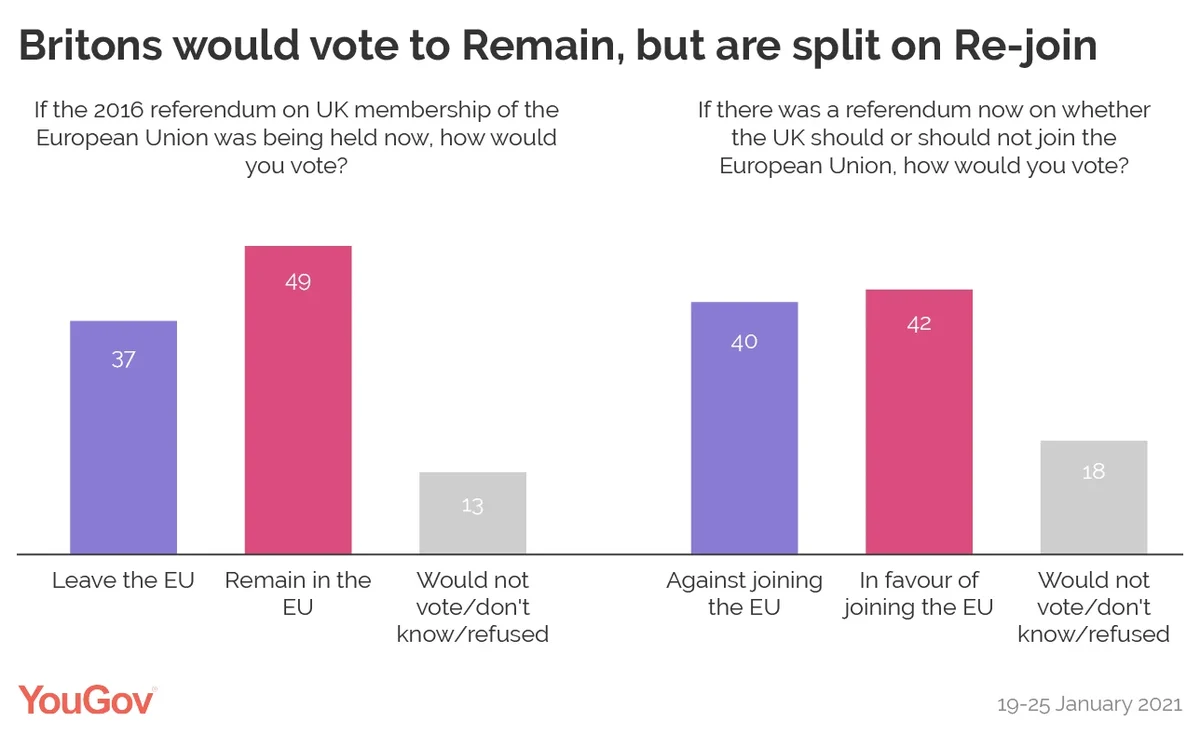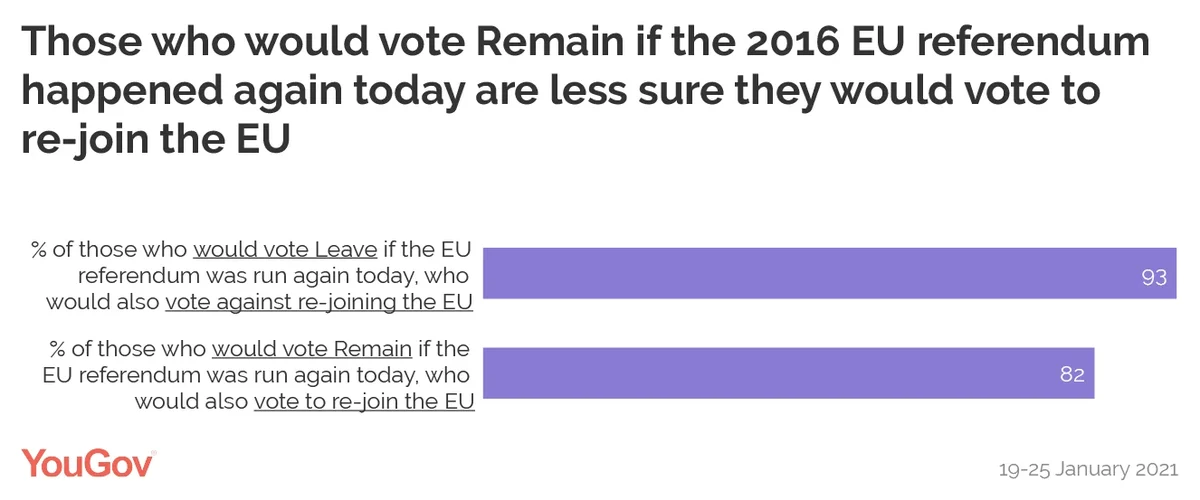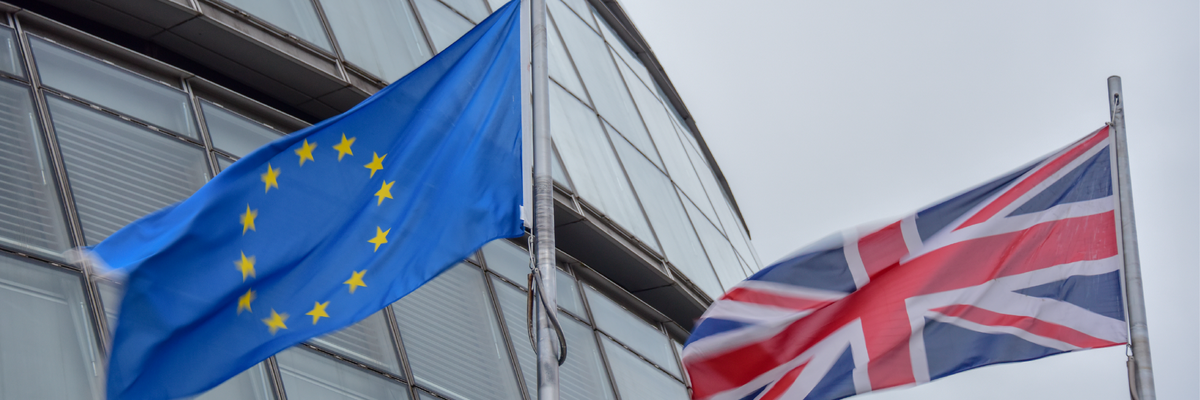In our latest study on the issue of Europe, YouGov looks at how people’s perceptions differ, depending on the question they are faced with
With the country still gripped by coronavirus, Brexit has largely struggled for column inches over the last twelve months. But it’s not just news media whose attention has been elsewhere, Brexit has significantly fallen out of the public consciousness too. On YouGov’s most important issues tracker, despite being chosen by well over half the public as the top issue for almost four years, the pandemic pushed Brexit down into third place behind health and the economy. And although it topped the charts again briefly during the crunch talks around Christmas, only around a third of people now pick Brexit as one of their three most important issues facing Britain.
But while the public might see other issues right now as more important, for some the campaign to re-join the EU is already underway. On the day the UK left the transition period on January 1st, former Tory deputy leader Michael Heseltine said: “the battle starts again.”
Ever since the EU referendum, YouGov has regularly tracked whether the public think it was right or wrong to have voted to leave the EU. While there has been a gradual shift towards thinking it was wrong, the public have remained divided, with our final poll before the transition period ended showing 51% wrong, 40% right to leave.
Now that Brexit has taken place and the transition period is over, we have tested two hypothetical referendum questions to see what attitudes to EU membership are. The first asks how people would vote if the 2016 Remain/Leave referendum were happening now, while the second looks at how people would vote if there was a referendum on re-joining the EU.
Asking people whether they would vote in a 2016 re-run shows a 12-point lead for Remain – similar to the outcome of our right/wrong to vote to leave the EU tracker. Half (49%) say they would vote to Remain versus 37% who would vote to leave. The remaining 13% say they would either not vote, are unsure, or refuse to give an answer.

When asked how they’d vote in a referendum on joining the EU, however, things are a lot closer. Under this second question, 42% say they would vote in favour of re-joining the EU, just two points ahead of the 40% would vote against joining (18% gave no preference wither way).
While fewer Remain voters than Leave voters have changed their mind on how they voted in 2016, the same cannot be said when asked about re-joining.
There is very little difference in opinion across the two questions amongst those who previously voted to leave. Eight in ten Leave voters (81%) say they’d vote to leave if they had their time again (9% would switch to Remain), and 79% say they’d vote against joining the EU if that was the referendum they faced (8% would be in favour of joining the EU).
The difference in the overall vote in these two hypothetical referendums is largely coming from those who voted Remain previously. When asked how they’d vote if the 2016 referendum happened now, 89% would still vote Remain, with just 6% switching to Leave. However, faced with a referendum on re-joining the EU, just 76% would vote in favour of re-joining. One in eight of those who voted Remain in 2016 (12%) say they’d vote against returning to the EU fold.
Overall, just 82% of those who would vote Remain now would also vote to re-join the EU, compared to 93% of Leave voters who would vote against re-joining.

Small, but significant, numbers of those who would vote Remain in a 2016 re-run would either vote against re-joining (7%) or are unsure or would not vote (10%). By contrast, 2% of potential Leave voters would vote to return to the EU, while 5% don’t know or wouldn’t vote.
Clearly being so freshly outside of the EU, re-joining might now seem a strange idea to many and the tectonic plates of politics could well shift considerably in the coming years. But if Heseltine is right and the battle to re-join the EU has begun, to stand any chance the re-joiners will have to understand that just rallying pro-Remain sentiment might not be enough to win the day.








